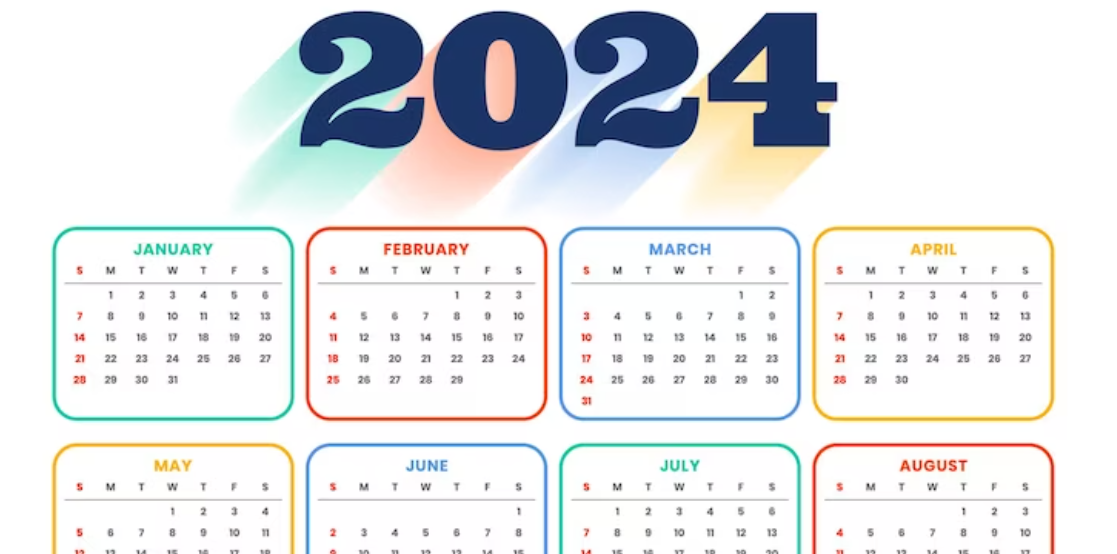I told myself I wasn’t going to procrastinate “as much” at the beginning of 2023, and I started off the year great. But slowly, the line of “as much” blurred, and I began letting myself off easier and easier until the resolution was forgotten. With the fresh start of 2024, New Year’s resolutions have resurfaced social media. As I aimlessly scroll, I’m met with an abundance of “eat healthy, lose weight, exercise more, read more, don’t procrastinate” and so on. It’s crazy how many people I see who try to set sky high expectations to completely change themselves in just 365 (this year, 366) days.
In reality, however, it’s impossible to succeed at those vague resolutions of eating healthy and exercising more—because what exactly defines eating healthy? What does “more” really mean?
New year’s resolutions originated all the way back with the Babylonians, and although the meaning behind them has shifted quite a bit since then, the practice remains the same. Babylonians made promises to their gods that they would repay their debts and return borrowed objects in the coming year, and if they failed, they would fall out of god’s favor. Applying that same idea, the common perspective of new year’s resolutions today is a “pass-fail” mindset.
Frankly, I absolutely hold the same mindset for new year’s resolutions and other goals as well. One of my biggest resolutions for 2024 is to reduce my screen time, whether that be on my phone or on my laptop. Within the first week of January, I was shocked to see my sky-high phone screen times and my first thought was “how am I supposed to succeed at this resolution in 2024 if I’m already failing in the first week?” Unconsciously, I found myself having a mindset of immediate defeat after “failing” my resolution when realistically, resolutions need to be looked at from a more progress-focused point of view.
Seeing resolutions as pass-fail takes the one vital purpose new year’s resolutions have; that purpose being to inspire and offers an opportunity for people to reset and reflect. Characterizing my early-on high screen times as failures discouraged me to keep going with my goals, and for many people, ultimately spirals into the ignorance of that resolution by mid-year, or in my case, just a couple of weeks. This is one of the largest problems with new year’s resolutions. Society and human nature have emphasized the need to perfectly complete a goal with no mistakes, but let’s face it, that’s impractical.
We need to reshape our perspective when it comes to living out our resolutions to a mindset that applauds the little accomplishments. Going back to my “procrastinate less” resolution in 2023, I’d be straight up lying to you if I said I never had days where I went to bed feeling unfulfilled because of a lack of brain-stimulating activities. But, those few unproductive days don’t take value away from my extremely productive days where I went to bed feeling proud of the work I had done that day.
These little improvements show evidence of real progress with my resolutions and should be applauded. No one has never had a cheat day in their life, so why does the one “break” day turn into a disappointment that results in the individual giving up?
It’s also important to note the structure of the resolution itself. Let’s say someone has a resolution of exercising every day. Every day. All 365 (366) days would be spent exercising. No rest days. Soon, the question of what “exercising” really entails will come up; biking and running are exercises, but walking around the block also counts.
The problem here is the inexplicit connotations that come with saying something so vague without a proper plan. So in order to shift the meaning associated with new year’s resolutions from a facade to something purposeful is by creating a specific strategy. A plan that lays out exactly how many days a week one exercises for, how many rest days, what one would do on vacation, how long each workout will be, what kind of workout each day and so on. While this may seem tedious and unnecessary, having a detailed plan is the only way your new year’s resolutions will take shape in real life.
In addition, it must be recognized that New Year’s resolutions are not the “only” way goals can be set, nor can they only be made in the new year.
Building your life upon a few unrealistic goals for a whole 12 months can be impractical, because you don’t know what unexpected twists life will throw at you. That’s why I personally love the concept behind “Sunday resets,” which have become a popular way for many to relax and refocus for the new week ahead. This includes cleaning up your room, planning out your week, doing laundry, etc. These Sunday resets are opportunities to reassess my life one week at a time, which allows me to aim for realistic goals I could complete in that week. I like to think of these resets as mini new year’s resolutions that are much more achievable and once I complete them, I’m left feeling proud and accomplished rather than defeated and like a “failure.” Starting off my week feeling ready for what’s to come is much more practical than starting off my year trying to convince myself I’m ready for all 366 days.
Even though I’ve been critiquing new year’s resolutions this whole time, I absolutely see the value in creating the resolutions at the beginning of a new year. So often I hear the phrase “what not a better time than the new year” when it comes to starting or improving on anything new, and this mindset is because of the optimism the new year provides. Novelty and fresh beginnings naturally feel inspiring and exciting for many people, including me, as it sets off a desire to improve, which results in reduced burnout with new motivation all because of a switch from 23 to 24 and from December 31st to January 1st. So my answer to the question of new year’s resolutions would be: out with unstructured and overly ambitious resolutions, in with specific strategies to practically improve one’s lifestyle.




